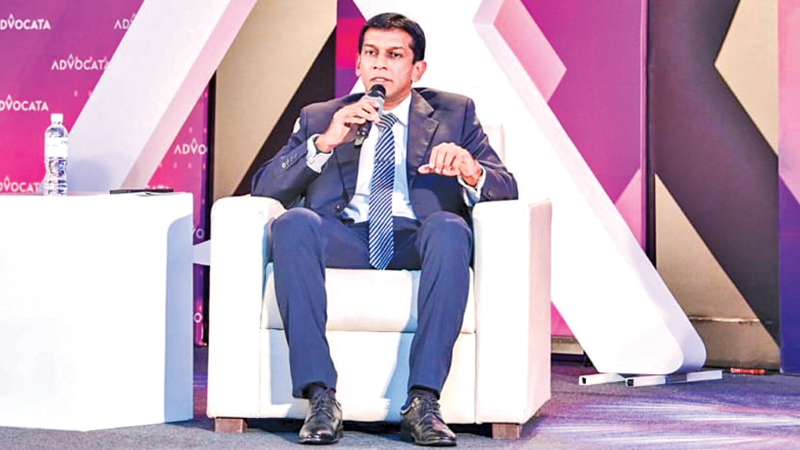The Credit Information Bureau of Sri Lanka (CRIB) plays a crucial role in ensuring the stability and growth of Sri Lanka’s credit infrastructure and the overall economy, said Director/General Manager (GM) of CRIB Sri Lanka, Pushpike Jayasundara.
He was speaking at the Ignite Growth Conference 2025 organised by Advocata Institute – an independent policy think tank based in Sri Lanka, recently.
He said CRIB played a significant role as an integral pillar of the financial infrastructure of Sri Lanka adding that by collecting, collating and disseminating credit-related data and reports with a strong focus on data integrity, security and value addition, CRIB serves as a key enabler in strengthening the credit ecosystem.
Jayasundara emphasised the importance of financial awareness and literacy among citizens in fostering a robust credit culture and dispelling negative perceptions about the credit reporting systems.
To achieve this, he highlighted CRIB’s continuous efforts over the past year to promote financial awareness, discipline and independence among citizens.
These initiatives have focused on educating the public and businesses on the benefits of maintaining good credit health, their right to access their own credit information, and the ability to obtain their personal credit reports directly from CRIB through crib.lk.
Jayasundara also emphasised the importance of creating credit profiles for unbanked individuals, enabling them to access regulated financial institutions. To support this initiative, CRIB is in the process of introducing a powerful new tool — the MSME Scorecard — in addition to the National Credit Score already in place.
He highlighted that CRIB is actively engaging with relevant authorities to incorporate non-traditional data sources such as utility payments, telecommunications, and insurance records, aligning with international best practices. By leveraging these alternative data sources, CRIB aims to reward individuals for their financial behaviour, providing them with opportunities to obtain credit facilities at lower interest rates and on favourable terms — without the need for tangible collateral. This initiative will help prevent vulnerable individuals from resorting to informal lenders, thereby fostering a more inclusive and equitable financial ecosystem.
CRIB extensively collects and processes credit data on a monthly basis, applying over 600plus validation rules and audit measures to ensure its integrity, reliability, and security. In 2023, CRIB successfully migrated to an advanced IT platform, enhancing operational efficiency.
Looking ahead, Sri Lanka’s SME sector is expected to benefit from the forthcoming SME Score tool, currently under development in collaboration many authorities. Given that SMEs often lack tangible assets for collateral, this tool will incorporate non-traditional data sources to establish reputational collateral, helping them secure financing from formal financial institutions. Jayasundara also presented key statistical insights on Sri Lanka’s credit ecosystem, highlighting credit distribution across various sectors and the crucial role of credit inclusivity in maintaining a balanced economic environment.
He pointed out that a significant portion of the population remains outside the formal financial sector, lacking credit histories and, as a result, facing barriers to structured lending opportunities.
He said that Sri Lanka’s lending framework is predominantly collateral-based, which restricts access to credit for many individuals and businesses.
To address this, CRIB has introduced advanced data-driven solutions, such as the CRIB Credit Score, which serves as a robust risk assessment tool. By promoting the use of credit scores, CRIB seeks to shift the credit eco-system towards lending against creditworthiness of borrowers rather than availability of physical assets
Credit scores are generated using statistical modelling techniques applied to raw credit data from over 20 key data points. These models analyse financial behaviour patterns, establish relationships between variables, and assess an individual or entity’s probability of default over the next 12 months. CRIB remains committed to encouraging financial institutions to leverage these credit assessment tools, ultimately improving financial access and fostering a more resilient and inclusive credit ecosystem in Sri Lanka.
A milestone for CRIB will be the upcoming launch of the electronic Secured Transactions Registry (STR), aligning with Secured Transaction registry Act No. 17 of 2024.
This initiative will facilitate the acceptance of movable assets — such as machinery, inventory, equipment, vehicles, livestock, account receivables, securitisations, investment instruments and intellectual property — as collateral for loans, promoting financial inclusion and expanding lending opportunities.









